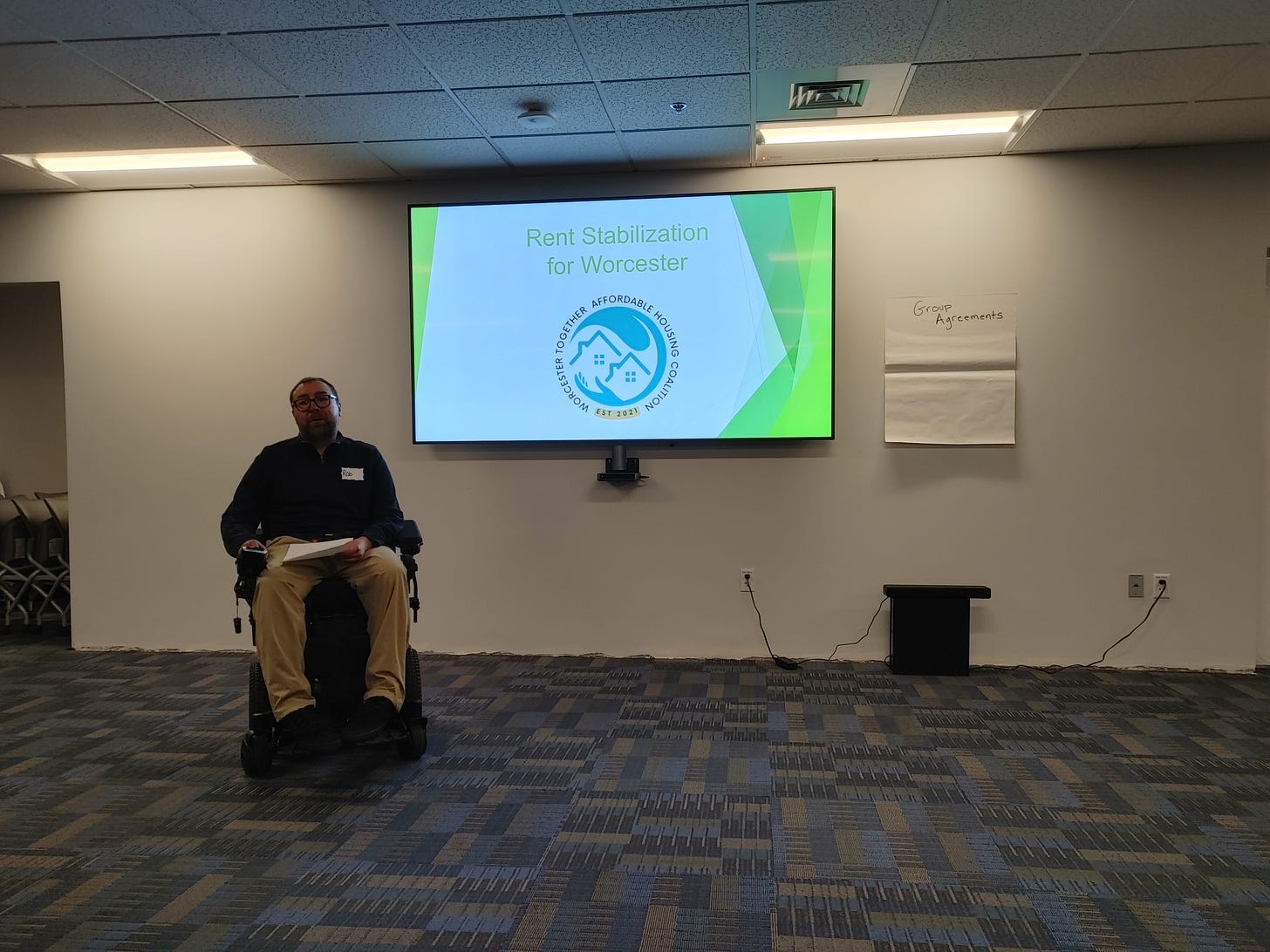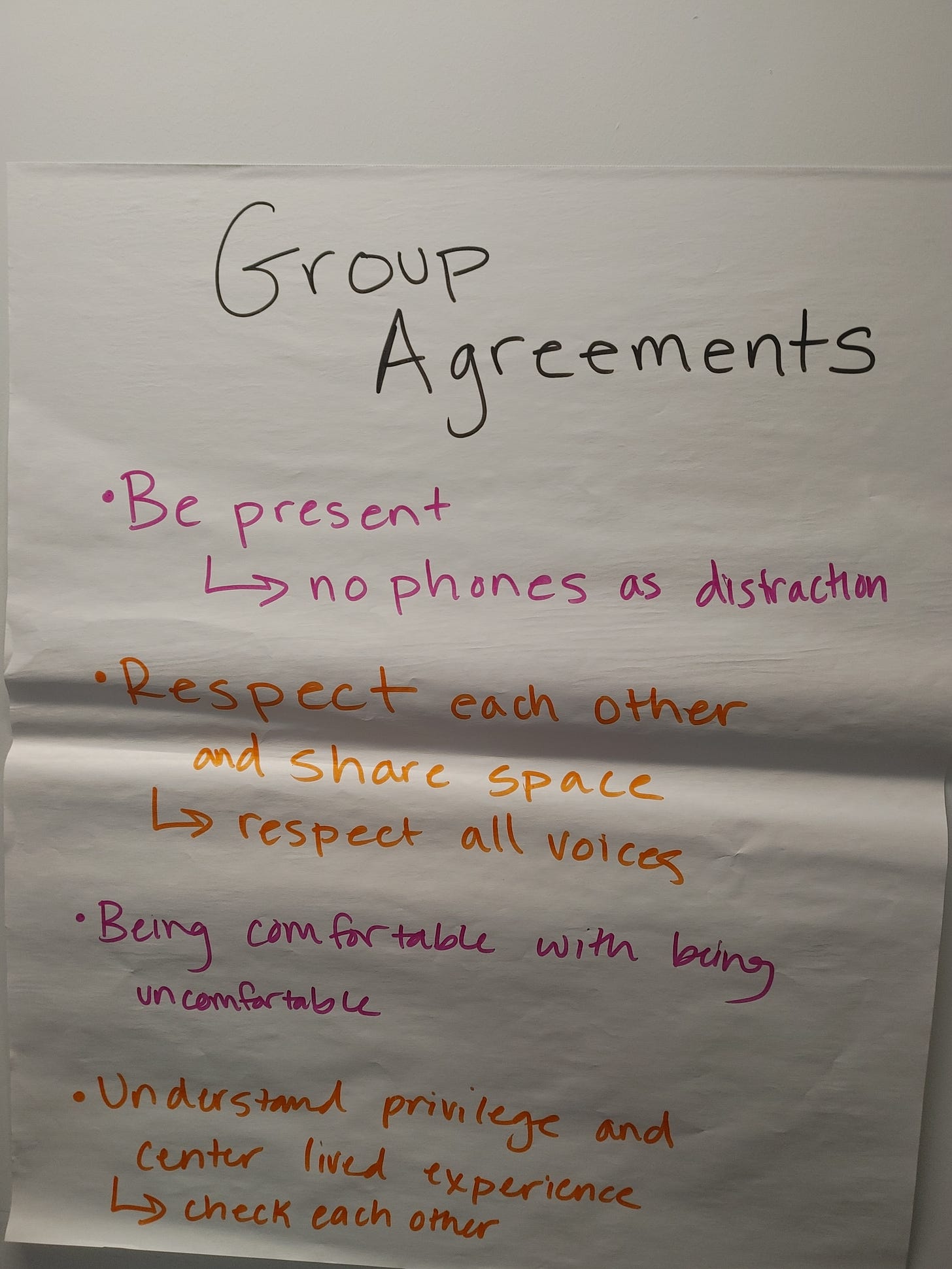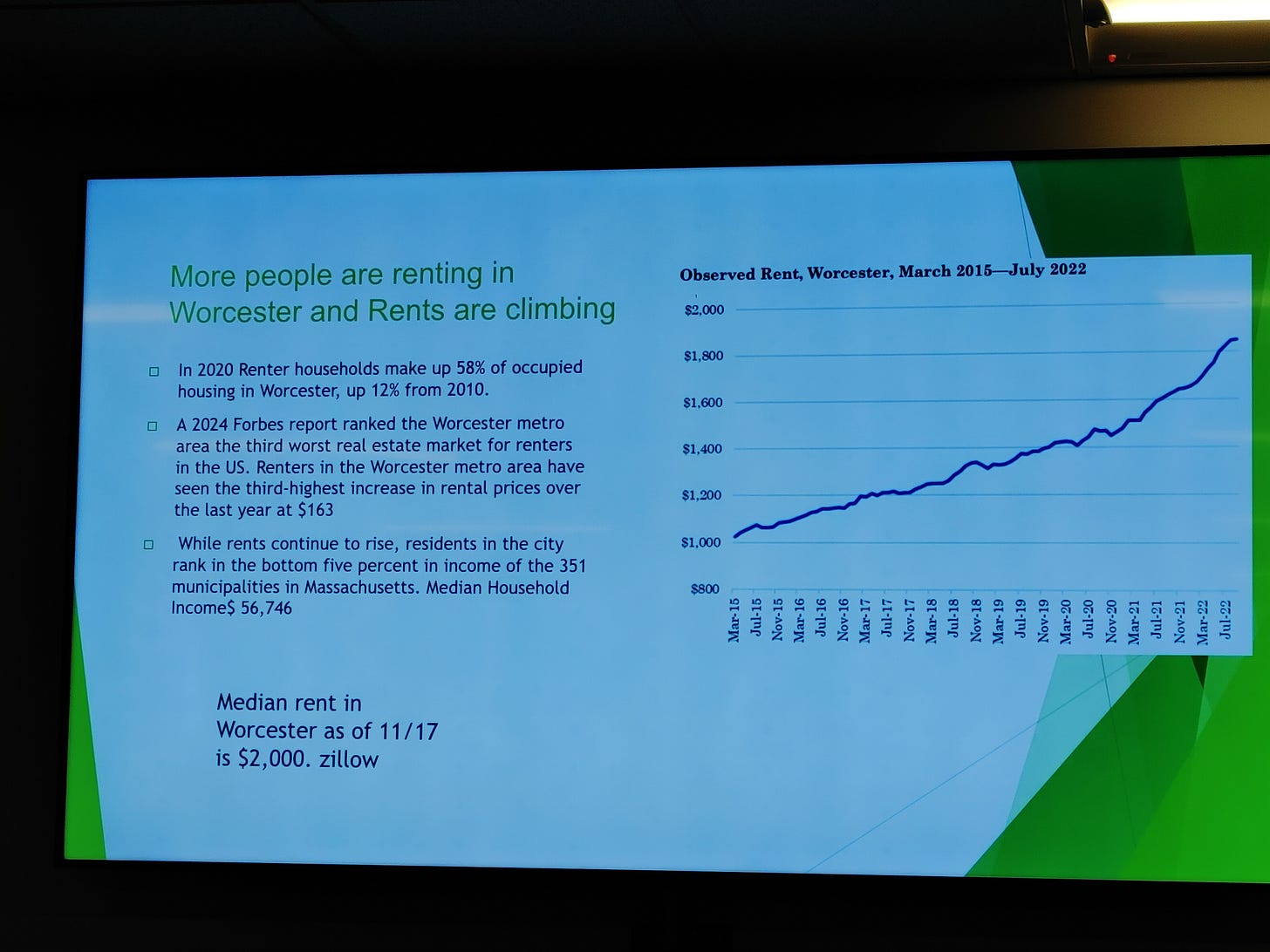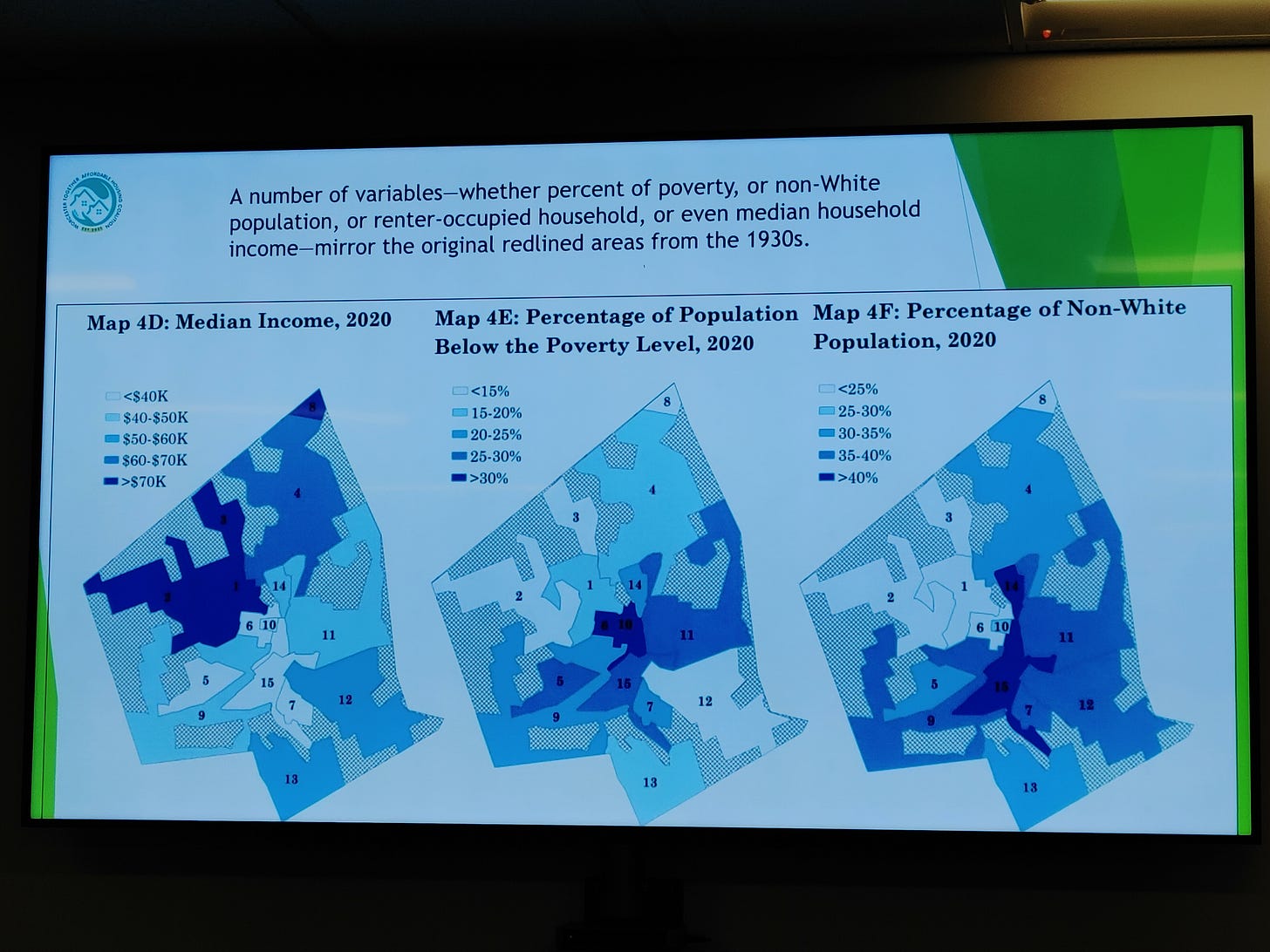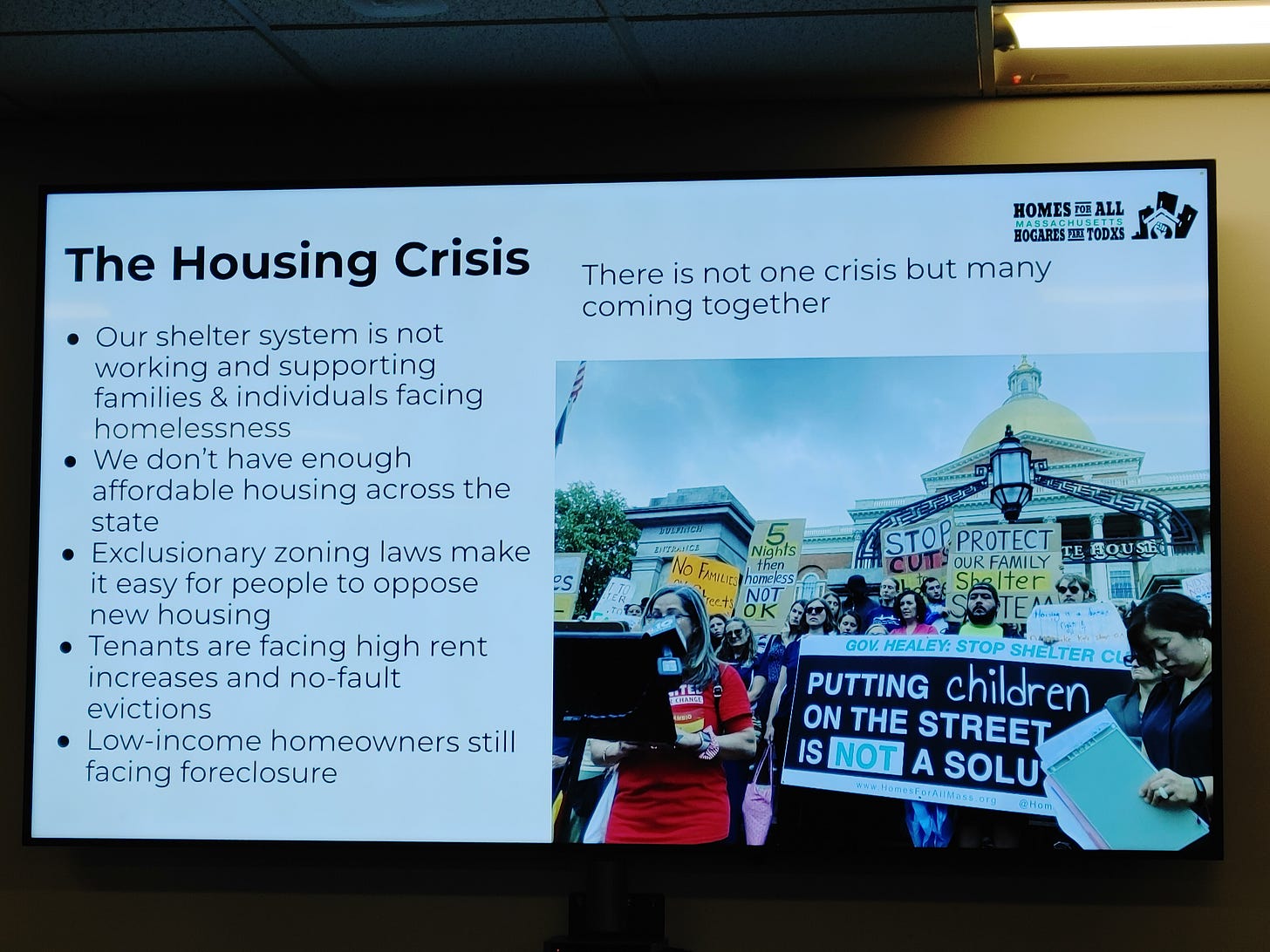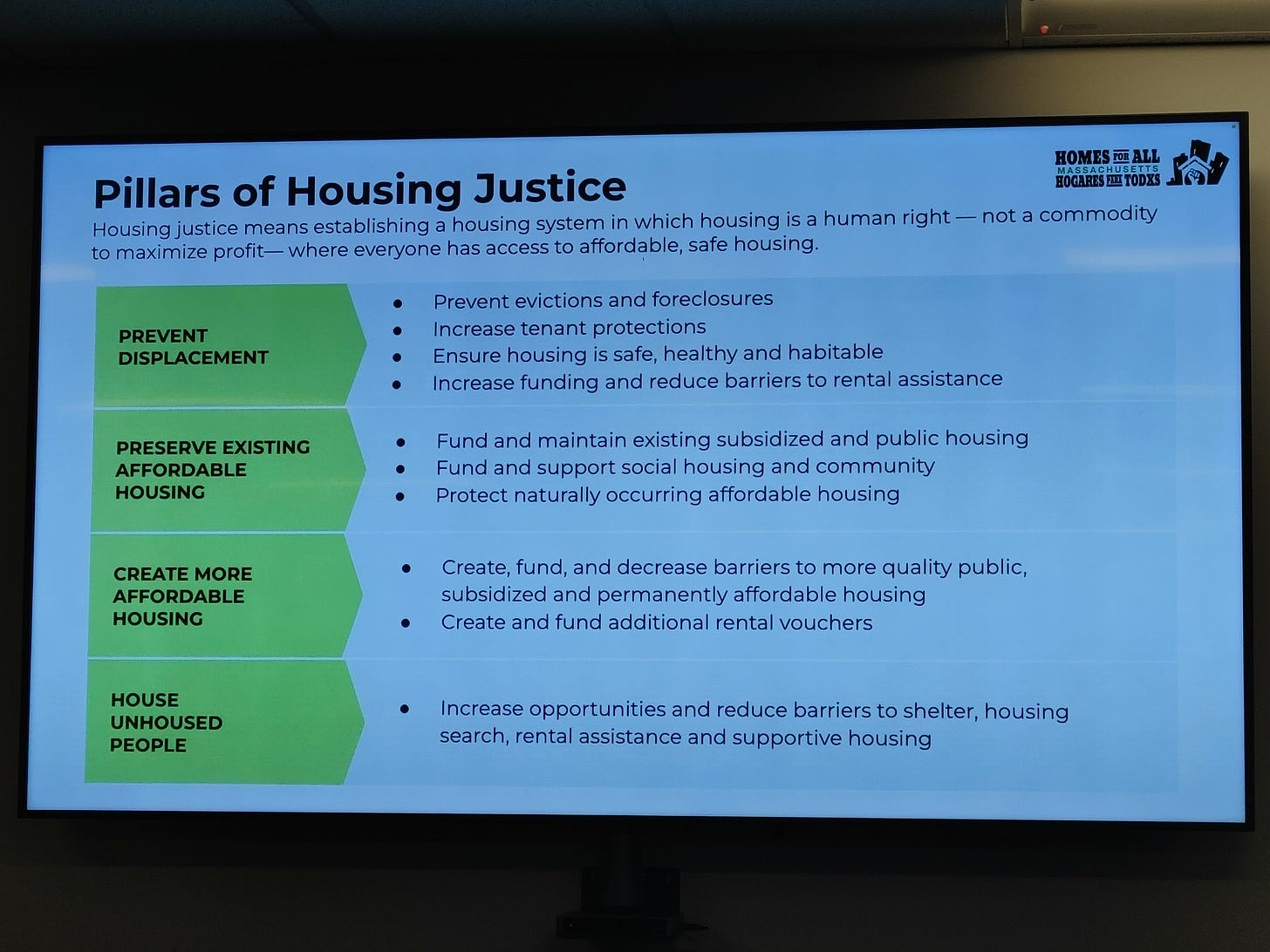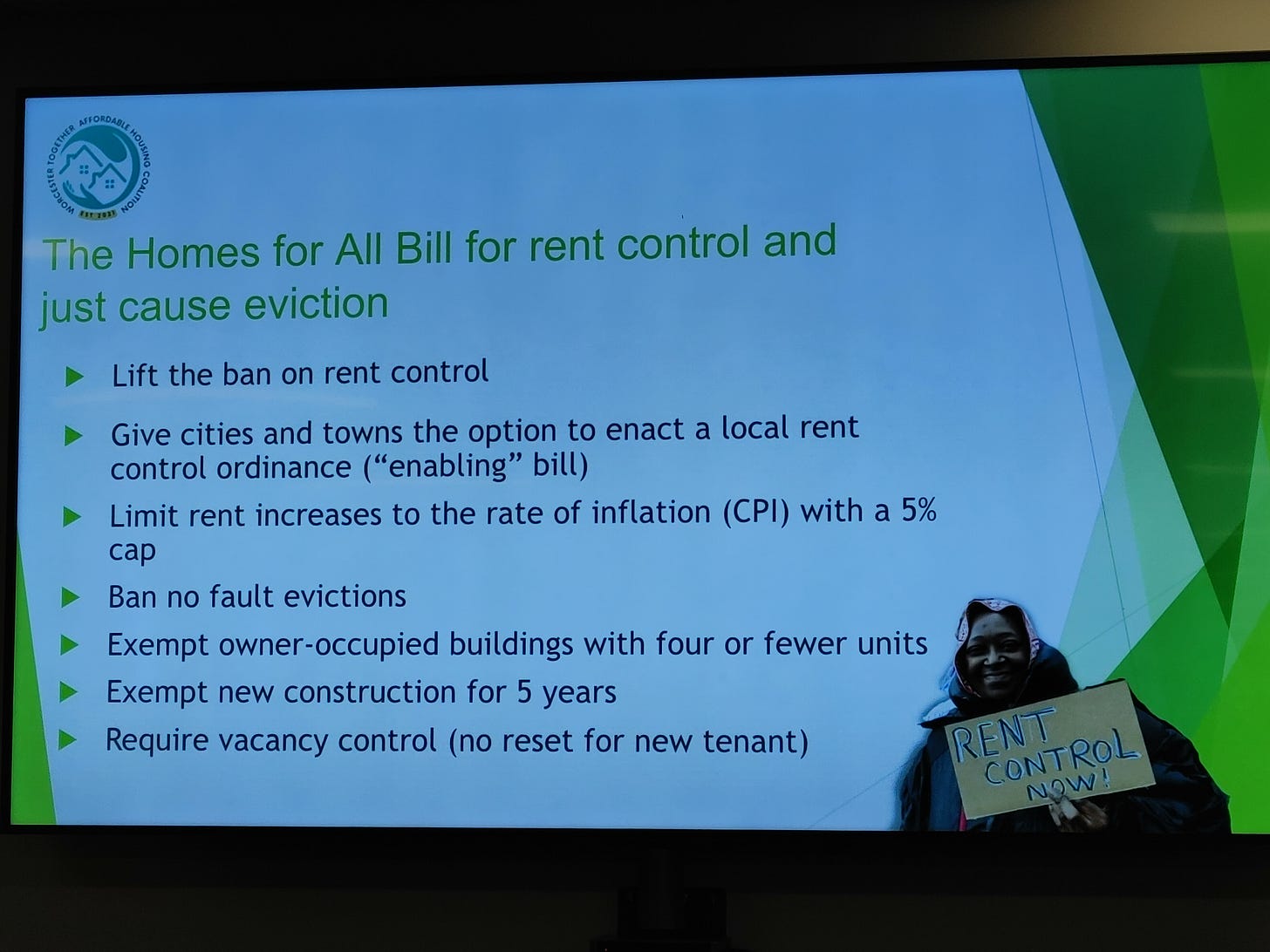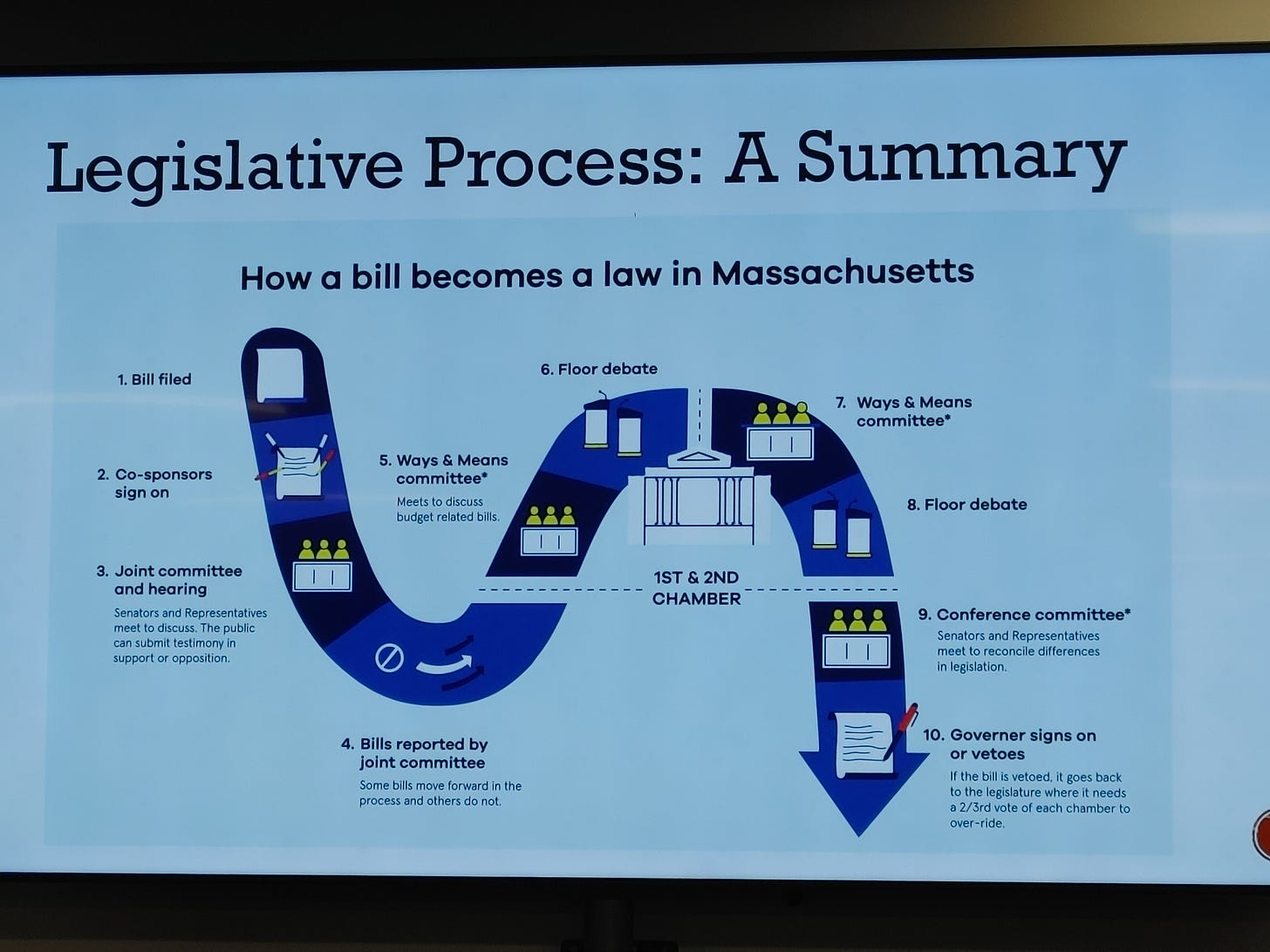Rent stabilization for Worcester
This is about Preventing large catastrophic rent increases
*This is compiled mostly from notes taken at the event. I did not get all the presenter names, and am sharing this for informational purposes for people who couldn’t make it to the meeting, do not use it as a factual reference*
It was made clear that even though we were setup as a presentation this was a conversation with the community and to contribute any input and thoughts.
We started with establishing Group agreements, one I want to highlight is “Understand privilege, Center lived experience”
Reverend Aaron Payson Addressed part of the issue as a mass exodus in the mid 50s when people moved from downtown to other neighborhoods, expecting more to be brought to those neighborhoods, which sometimes never happened.
We were shown Red line maps, and it explained how these are still very relevant when looking at local issues.
“Rent control is down the line what we do now”
Changing values, acknowledging that an apartment is not a bad thing and sharing community should be what we're focusing on, not independence.
Nelly Medina spoke about how we need to be really strategic, consider the trust factor and how we're bringing people into these conversations.
Someone spoke up and articulated that part of the issue is that We can never be Boston, but it seems like Worcester is marketing itself as the next Boston which means we are bound to fail.
There was discussion of creating a canvas in Worcester county area focused on renters, and acknowledged that renters are 60% of the people living in Worcester.
It doesn't necessarily matter who is in what seat of power, they have been following the same playbook for a long time, and this is an opportunity for people to have a voice
We talked about "What does it mean to be affordable" and brokedown that so-called affordable housing in Worcester is based on the area median income, or AMI, of Worcester county which Includes Shrewsbury Holden Milbury and doesn’t accurately reflect the income of people renting in Worcester.
One thing they seek to address is “No fault evictions”, landlords being allowed to kick people out without a reason. Property owners are known to do this to double their rent when tenants cannot afford an increase.
Landlords have a warranty of habitability that often isn’t upheld, and Rob Bilotta addressed how Worcester recently brought forward a possible solution to some of these concerns, in response to firefighters dying in Worcester. When it had been determined that our old housing stock had problems that had been allowed to continue as these buildings remained uninspected until someone complained, they came forward with a proactive solution, the Rental Registry.
Unfortunately, our current city council gutted it with exemptions that rendered it inefficient and practically useless, while still giving the city the appearance of doing something about it.
They discussed increasing rental assistance, how RAFT programs had run into issues with uncooperative landlords, or paperwork taking too long. There were apparently numerous instances where rental prices had risen faster than applications were processed so even with willing landlords, sometimes units they had available were no longer covered by vouchers issued.
The purpose of this is to preserve affordable housing and keep rents low. But the massachusetts department headed by our former city manager, Ed Augustus has determined that the solution is more development, “Build it just build it” but that includesLuxury condos and all kinds of things that do not actually provide housing for people and has resulted in exponentially increasing rent.
The presenter said they have No idea what's going to happen with the upcoming federal administration.
We discussed scary circumstances, people being asked to move without notice, or being required to find a new place within 90 days week to use their voucher. This is harmful for mental health and the many barriers in the process create a sense of hopelessness.
Even when people are otherwise ready to buy a house, they can't because it's now too expensive, and people are being tossed into elderly buildings rather than having their own place.
Many facilities are running out of affordable housing, and people are discovering you can't just use vouchers on your own apartment.
Reverend Payson suggests engaging in an effort to shift the narrative from “affordable housing” to “Sustainable housing” acknowledging that these systems are currently using formulas that make the idea of affordable housing a mockery.
This fights gentrification but has been shown not to discourage new construction.
Short history on rent control in MA:
There was a statewide campaign in 1994 using racialized classist arguments that presented renters as bad and towns with few renter overwhelmingly voted against rent control resulting in slightly over 51% win for landlords to keep raising prices forever.
https://pioneerinstitute.org/economic_opportunity/a-history-of-rent-control-policy-in-massachusetts/
People talked about how we need more renters, that they’re the livelihood of our city.
How we need to focus on the community not the individual, and that is how we sustain our community
We addressed how these conversations happen everywhere to be specific for the place they’re over, and we of course gotta include triple deckers in worcester.
We need to ensure it’s still possible for landlords to improve their property and recoup costs
Things are in the works, but if Rent control does not pass, we need to find other solutions.
One speaker says how during COVID when we had a moratorium on evictions a strategy some landlords would use is just taking the unit off the market rather than renting it, and suggested we find a way to incentivize keeping units in the market, maybe losing any tax incentive they had received.
We need to be thinking about different types of housing, including cooperative housing, and accommodating for Intergenerational housing, recognizing that there’s many grandparents raising grandchildren as well as children taking care of parents.
Someone mentioned a situation about how often the two nonowner occupied units of a triple decker are "unlivable", and if we could create better solutions for those landlords it may be better maintained. It was discussed that Worcester has resources for older homes but many of them are only reimbursement and the process is complicated.
Someone mentioned ADUs (accessory dwelling units) and we discussed how Worcester did do something but the State had passed something enabling them more recently.
We talked about how most renters are renting in the private sector, paying first/last/security to move into a place to with no real guarantee of what issues have or haven’t been maintainted.
It was pointed out that tenants need to be able to assert their rights without being afraid of losing their affordable living - He elaborated that people are afraid to exercise their rights because rent could just go up, or they may be kicked out when asking for repairs.
Rent stabilization can work in Worcester
A large problem is property investors buying two or three triple deckers at a time. Rent aside, people can't afford to buy a triple decker because they're going for a million dollars amid catastrophic rent increases
We’re not asking for rent freezes, would be allowing for fair incremental rent increases
This can work to Worcester, but we need people to show up
When we're all together we can have an impact
We're all living with these realities
This is not about renters vs homeowners
Prices people out of paths to homeowner
Learn about the next meeting and follow their work on their Facebook
Editorial: I think politically, this is about renters versus developers.
Does Worcester want to prioritize someone renting a three bedroom apartment or someone building a thirty apartment building? The answer is a compromise, but it has been focusing on the bottom line of companies making percentages off of other people making percentages rather than the actual workers, and it’s resulted in a pretty unsustainable housing economy.
It’s trying to keep a few large sources of income happy without any consideration for the many small sources of income on the other side of the spreadsheets.
Also, the way to make property owners care is to either make it about what their taxes go to, or lower them.


